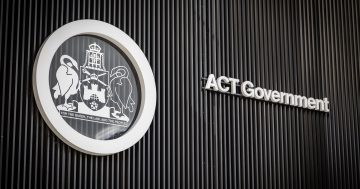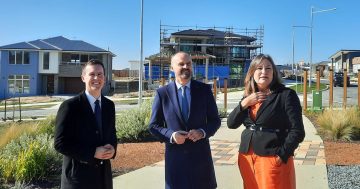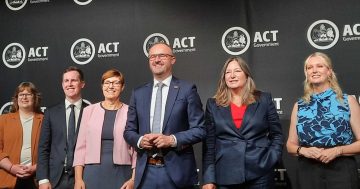
The ACT Public Service needs to deliver for the government and taxpayers. Photo: Michelle Kroll.
When Chief Minister Andrew Barr and his ministers return after the Christmas break they should start applying some heat to the feet of the bureaucrats who serve them.
That’s because the year has not been a good one for the ACT Public Service and other bodies paid for by the public purse.
Not only has a lot of our money gone down the drain, but it seems everything seems to take so long to get done.
The standout would have to be the $78 million written off in the Human Resources Information Management System (HRIMS) fiasco.
The new whole-of-government system was supposed to upgrade existing HR and payroll systems. Work began in March 2017 but the project was scrapped in June 2023.
And the total bill does not include significant costs incurred across directorates and agencies that were participating in and assisting with the implementation of the program.
The Auditor-General found it was a flop at every level.
Special Minister of State Chris Steel has been left holding the can for this administrative disaster and should be furious with those responsible.
Similarly, with the multi-million dollar Canberra Institute of Technology (CIT) contracts affair, which the anti-corruption watchdog is investigating.
The CIT may be an independent body but it is still publicly funded, and it has been left to Mr Steel to clean up the mess and bear the brunt of Opposition attacks.
Another bureaucratic issue that the Integrity Commission is probing is the Campbell Primary School upgrade project, in which the preferred tenderer was overlooked.
Again, the actions of public officials left the government exposed to political attack, and Education Minister Yvette Berry should feel let down by her directorate.
Ministers are ultimately responsible under our system of government, but they appear to have been blindsided in these three examples.
The sometimes glacial progress of government projects and programs is also reflecting poorly on the government.
A fixation on process and unwillingness to shift means halting change, lengthened timelines and growing frustration in the community.
In the face of growing evidence that ACT public school performance is not what it should be, the Education Directorate seems obdurate and content with results that, while OK, do not reflect the socio-economic advantages that bless the ACT.
An inquiry into literacy and numeracy is now under way but it has taken a long time to get that happening.
Recently, the government issued a request for information tender about the proposed food and garden organics facility, which has now been pushed back to 2026.
It can’t just get on and build one, although there are plenty of functioning models around. It wants industry to provide all the latest knowhow so the facility will stand the test of time, the government says.
All well and good, but this just seems to be an unnecessary step in the process that will drag things out. All the while, tonnes and tonnes of compostable material will end up in landfill, generating emissions and going to waste.
In health, nothing has been able to resolve ED delays and elective surgery backlogs. The test will come when the Canberra Hospital expansion, which seems to be making good progress after such a prolonged gestation, opens.
At least at Canberra Health Services, boss Dave Peffer has been a prominent, active leader, committed to change.
Then there is the big one, light rail.
The government hailed the contract for Stage 2A, 1.7 km long. It’s going to be four years before anyone can take a ride.
Granted, the raising of London Circuit complicated the project and no doubt procurement and contract negotiations were complex. But the growing length of time to deliver the project has allowed doubts to grow in the community about its worth and the government’s ability to deliver it.
Not to mention the much more problematical stage over the lake to Woden, which looks like being a project for the next decade at this rate.
Canberrans have been on board with light rail but more may be willing to jump off if they cannot see faster progress.
These sorts of things all add up to a loss of public confidence and trouble for the Barr Government in an election year.
The question has to be asked if the relationship between the government and public officials in our small jurisdiction is just too cosy, and whether this and too much electoral comfort is contributing to inertia and a sense of drift.
It’s time for ministers to raise expectations, or they will be the ones to pay the price.





















